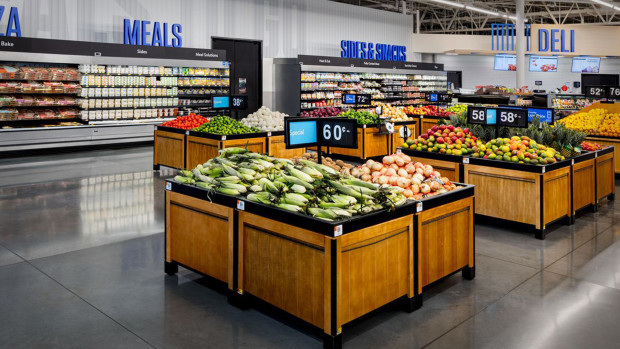
When two powerhouse global corporations decide to partner on a venture, it's good to know why. Walmart (WMT) -) is a global leader in retail stores, while PepsiCo (PEP) -) is a global leader in multi-brand retail with numerous brands in its portfolio and more than $1 billion in sales annually.
Walmart is known for its discount retail and lower-price grocery gives shoppers the ability to know they are getting some of the lowest prices possible. Walmart has an economical sustainability goal it has been working toward for roughly 15 years.
It has introduced several unique strategies in an effort to prioritize the planet and people like eliminating plastic bags in Canada and using all electric vehicles for deliveries in the United States.
PepsiCo is a household name around the globe, and with that level of recognition comes the responsibility to work toward economic sustainability. PepsiCo has established several goals in these efforts dubbed PepsiCo Positive aka pep+.
The goals include positive agriculture that encompasses regenerative practices, sustainably sourced ingredients, strengthened livelihoods, positive value chain which includes net-zero emissions, net water positive, sustainable packaging, meaningful jobs and opportunities, diversity, equity and inclusion, and positive choices that include innovative packaging solutions, expanded portfolio offerings and planet + people brands.

Shutterstock
Walmart and PepsiCo Expand Sustainability
PepsiCo and Walmart have joined together to support farms in both the US and Canada to improve soil health and water quality. Both PepsiCo and Walmart sell products that are dependent on the farming industry including potatoes, oats, corn, wheat soybeans and rice. Sustainability for each crop varies and needs to be addressed differently.
The two corporations have committed to a seven-year long partnership, with $120 million invested to enable and move quickly toward regenerative agricultural practices across more than 2 million acres of farmland. This project should reduce 4 million metric tons of greenhouse gas emissions by 2030, according to Walmart’s report.
Three different perspectives when it comes to the project come from the farmer, Walmart, and PepsiCo on how this initiative will make an impact.
“From my perspective, embracing regenerative agriculture is essential. It’s good for farmers, not only because it’s beneficial to the environment and our food quality, but also for the profitability of our businesses,” said Jeff Huffman, owner and operator of Island Farms LLC in Maxwell, Neb.
"If you use less fertilizer and you grow a bigger crop, or if you use less water and can still grow the same size of crop, it strengthens your farm in a way that benefits the bottom line and our environment for generations to come.”
“At Walmart, our sustainability strategy is built to make the everyday choice the sustainable choice for our customers. This collaboration with PepsiCo is a great example of how we are prioritizing the expansion of regenerative agricultural practices among farmers across North America so that we can continue to make quality products affordable and accessible for customers,” said Walmart’s senior vice president for Sustainability Jane Ewing.
"This collaboration aims to help elevate farmer livelihoods, engage them on how to more sustainably manage soil health, increase yields and create a model that others can mimic across other product categories, including encouraging additional investments in regenerative agriculture by other brands,” Ewing said.
“Successful sustainability starts and ends with trust. At PepsiCo, we work very hard to earn the trust of the farmer so they understand that we are investing in their legacy, and they can hand their farm down to the next generation,” said PepsiCo’s Chief Sustainability Officer Jim Andrew.
“Farmers know their business better than anyone else, and what we hear from them is that for regenerative agriculture to make business sense, three things need to happen. They need economic support, social and cultural support, and agronomic support. This strategic collaboration with Walmart will advance our shared goal to have farmers’ backs as they transform farming in a way that benefits the planet and people,” Andrew said.
Better Farming, Better Ingredients to Yield Better Results
This collaborative project aims to benefit all involved. Farmers can benefit with the support of PepsiCo and Walmart to improve their efforts to move toward climate-smart practices for regenerative agriculture. This practice should improve nutrients in the soil, however, the US Department of Agriculture claims that the practices haven’t been adopted because they are “labor or knowledge intensive,” Food Dive reported.
Transforming the industries from the ground up, Walmart, PepsiCo and farmers in North America will be working toward combating climate challenges together to reduce emissions and move toward a more positive sustainable farm to household outcomes.







